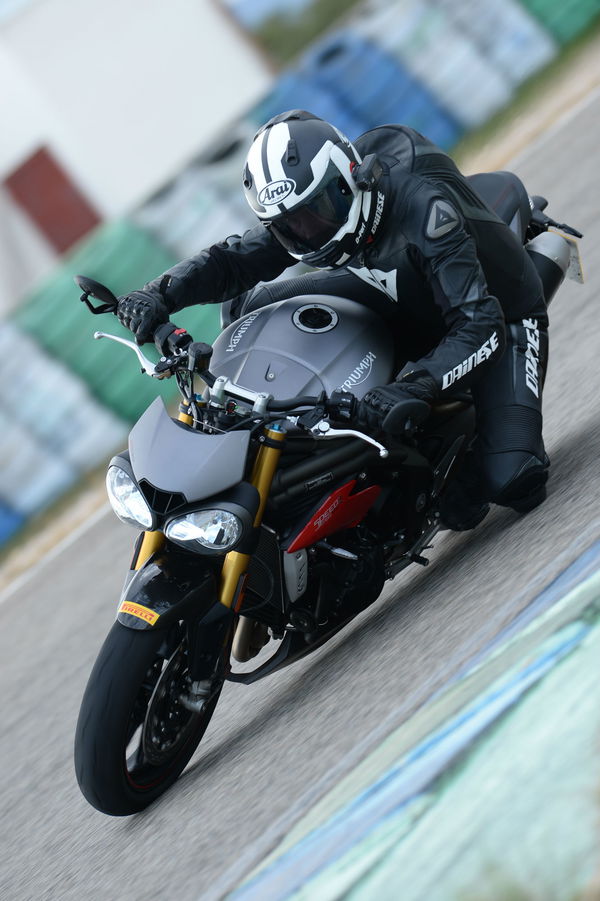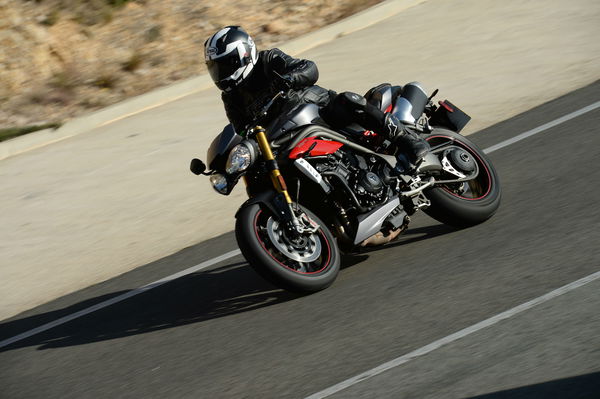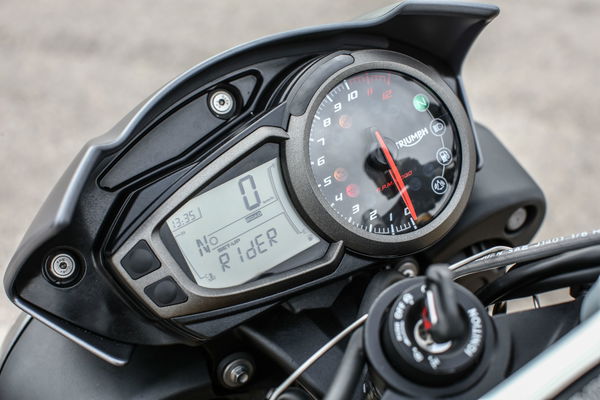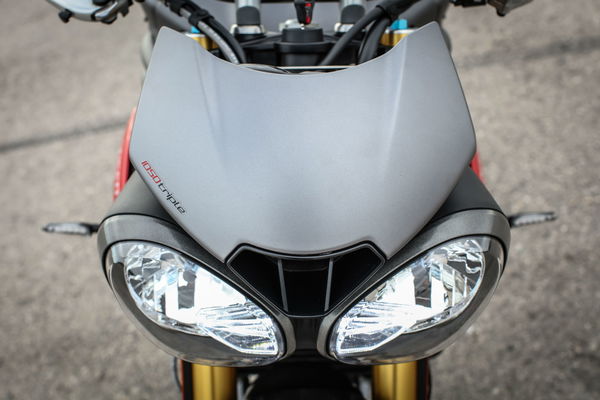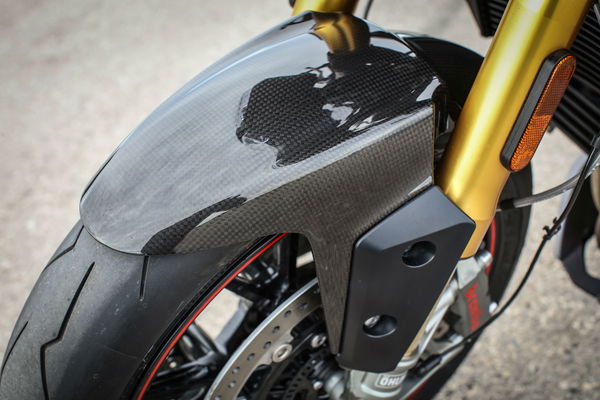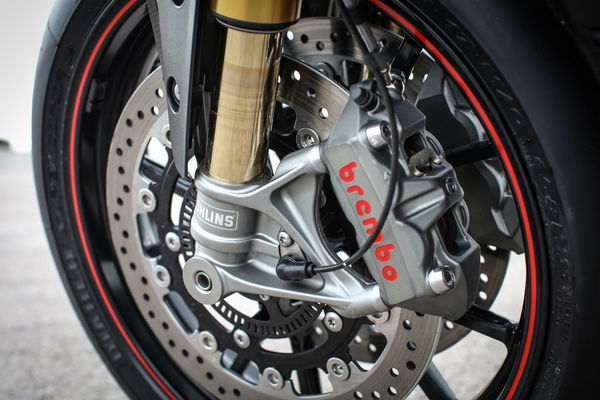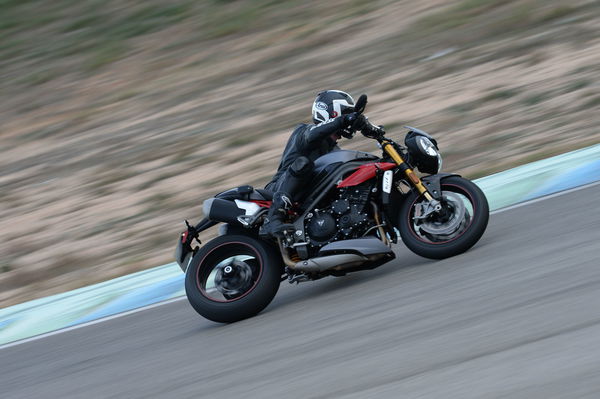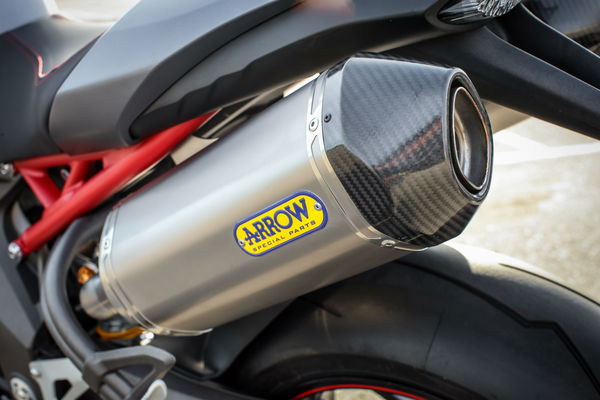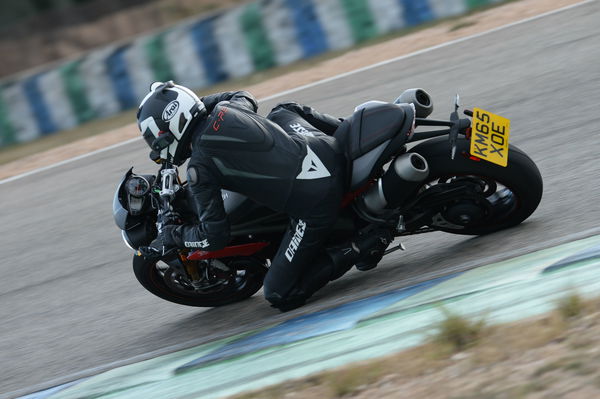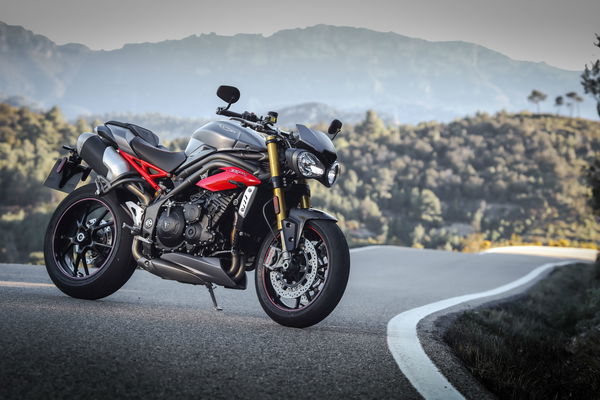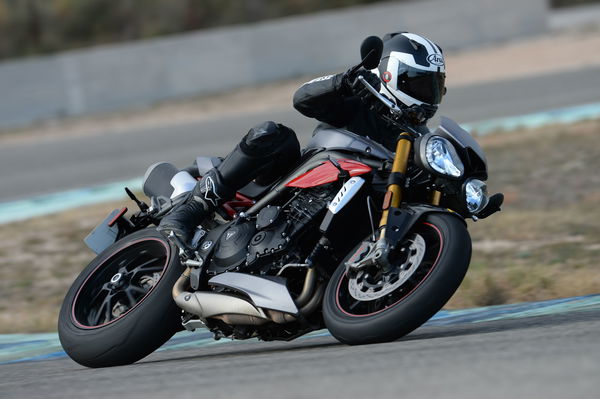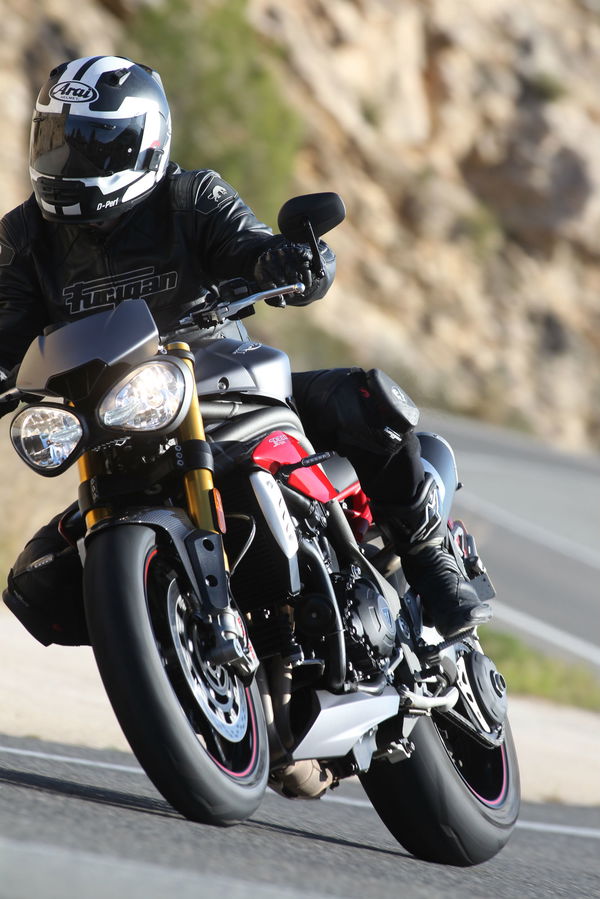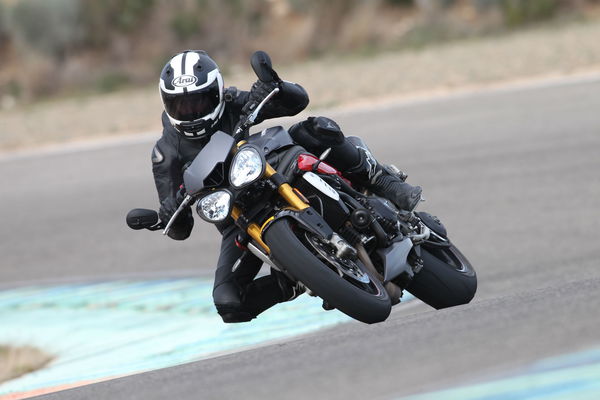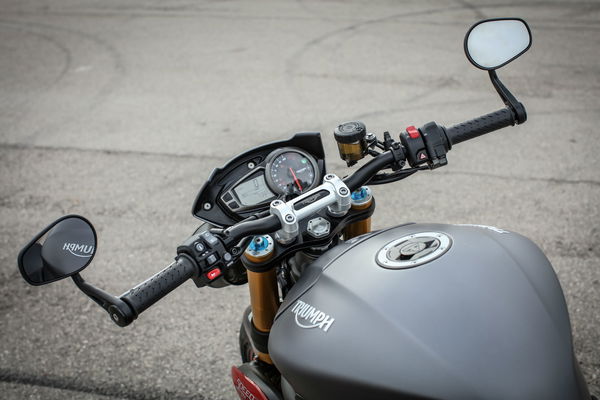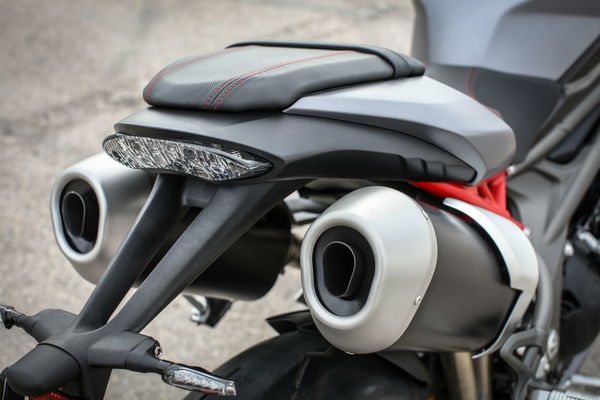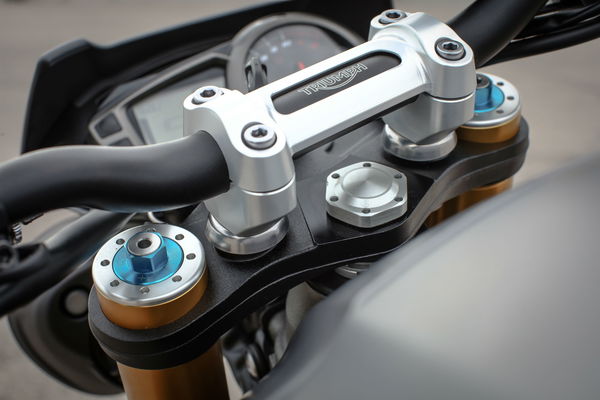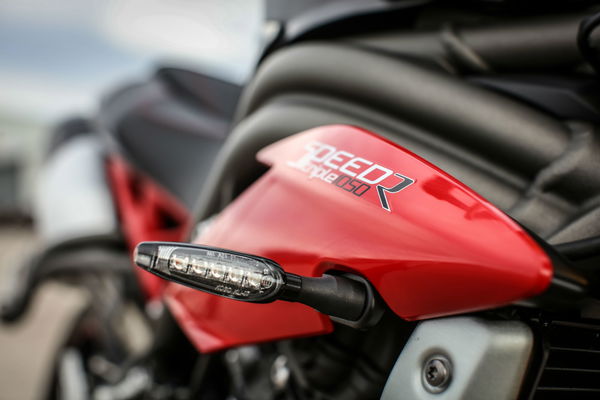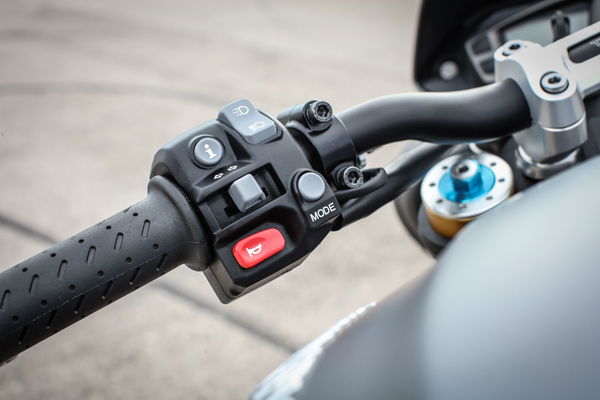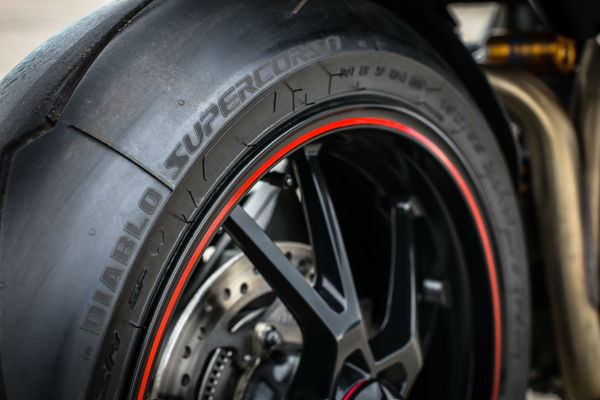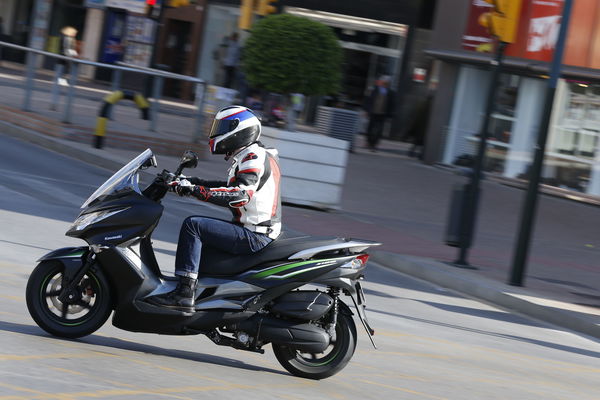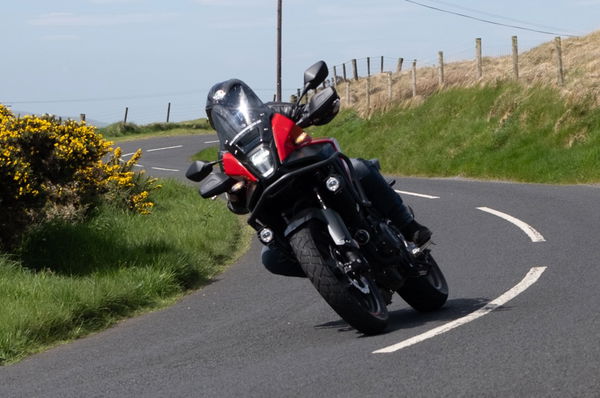First ride: Triumph Speed Triple R review
A gentleman’s supernaked
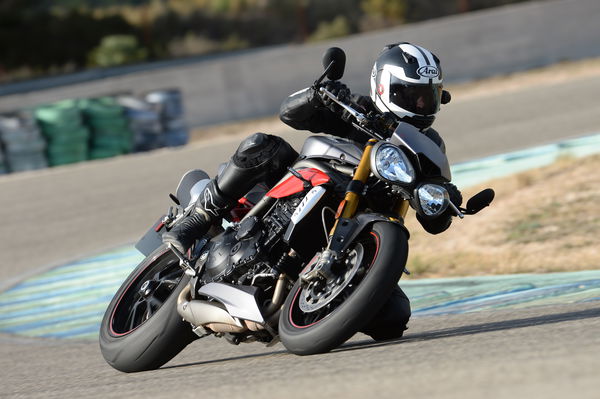

‘IT’S not that powerful’ I said to a mate before getting on a flight to Barcelona for the launch of the new Triumph Speed Triple. ‘Only about 140hp.’
‘That is a lot of power,’ said my friend, who’s also a motorcyclist. I realised he was of course right and that I, like the supernaked class, had gone mad.
You wouldn’t have to go far back to arrive at a time when the best litre sports bikes made less power than today’s supernakeds.
In fact Aprilia’s V4 1100 RR, with a claimed 175hp, makes the same as the original Suzuki Hayabusa, in its time the fastest production bike – and most ludicrous thing – any of us had ever seen. And the Aprilia doesn’t even have a proper fairing.
Even on the new Speed Triple, which Triumph confirmed on the launch makes exactly the 140hp we’d anticipated, a few seconds of moderate throttle is all it takes to feel like the wind is going to rip your head off. Your neck is straining, your chest is concave, your knees are being prized from the tank, and you think: ‘What am I supposed to do with the other two-thirds of throttle rotation?’
Presumably there must have been a temptation for Triumph to go bananas and chase the 160hp of the BMW S1000R and Ducati Monster 1200R, or even the 172hp of the KTM 1290 Super Duke R. After all, as Triumph was keen to remind journalists in the pre-ride presentation, the original 1994 Speed Triple effectively created the modern supernaked class.
The new Speed Triple makes 5hp more than the old one. I’m glad they didn’t pursue those higher figures.
It’s not just about the counter-logic of combining superbike power with almost zero wind protection. It’s about general usability. The Speed Triple doesn’t have the tear-your-arms-off-in-any-gear torque of the competition.
It's got 5% more mid-range torque than the old one according to Triumph, while the peak is a smidgeon up, at 82.6lbft compared to 81.8. That new peak is the same as the S1000R’s - but it’s not seemingly everywhere in the range like it is on the BMW.
The new Speed Triple is 9lbft down on the Monster 1200S and 14lbft down on the Monster 1200R. They also have torque curves a granny could cycle up, where the Triumph’s seems to take more of a climb to its 7,850rpm peak.
For example, open the throttle in sixth gear at about 70mph and the Speed Triple doesn’t unleash hell. You have to change down for hard acceleration.
And I like it for all that. I like the S1000R and Monster 1200 too, but the Speed Triple has power and torque that I can more often make full use off, and a throttle I can more frequently open. Where there’s really no point revving the Monster hard on twisty roads, with so much torque low down, the Triumph encourages and allows you to find the top-end between corners.
It’s a useable, gentleman’s supernaked to their brutish thuggery.
It’s not at all short of mid-range. It’s just got a more proportional relationship between torque and engine speed.
On fast, winding Spanish roads, its flexible enough to leave in third most of the time and forget about changing gear. Typically of Triumph’s triples, the 1050cc engine has not quite the mid-range of a twin, not quite the top-end of a four, but a compromise between the two. Or the best of both, if you prefer to see your glass as 50% of the way to overflowing.
The extra power and torque come from a range of engine modifications including new piston, crankshaft and combustion chamber designs, plus a revised fuelling system according to Triumph. The result, the firm says, is improved fuel economy as well as power, at 52mpg.
That’s allowed a reduction in tank capacity from 17.5 to 15.5 litres with negligible effect on range according to the firm. It means the tank is narrower, as is the seat, by 20mm.
The fly-screen is taller and the intake between it and the headlights is new.
It’s very compact, a natural shape between knees, with a committed-side-of-comfortable riding position. The seat has been widened at the rear. Just a slight lean forward is required to reach the wide bars.
There’s an impression of those bars being directly over the front wheel. The seat feels close to the front end so that you as rider also feel directly over that front wheel, the forks like extensions of your arms. Looking at the road ahead, the clocks aren’t quite in your field of vision. You have to look down to see them.
The steering feels light and quick-turning the moment the bike’s moving, responsive to delicate input.
There are two versions: the Speed Triple R, which was the one offered to journalists to test on the launch, and the Speed Triple S. The differences lie in price and suspension.
Both are fully adjustable front and rear but the S has a Showa shock and upside-down fork where the R uses an Öhlins NIX30 USD fork and TTX twin-tube shock.
The R also has carbon fibre bits, including the front mudguard.
The R costs £11,500 on the road while the S is £10,200.
Both use Brembo M4.34 four-pot radial-mounted calipers which are designed to give moderate initial bite for the sake of better control. They’re excellent. During some track sessions at Circuit Calafat, their power was clear, but it’s delivered progressively in precise proportion to lever movement. I brake with two fingers and, because of the amount of movement in the lever, found the other two squashed against the bar sometimes, until I fiddled with the span adjuster.
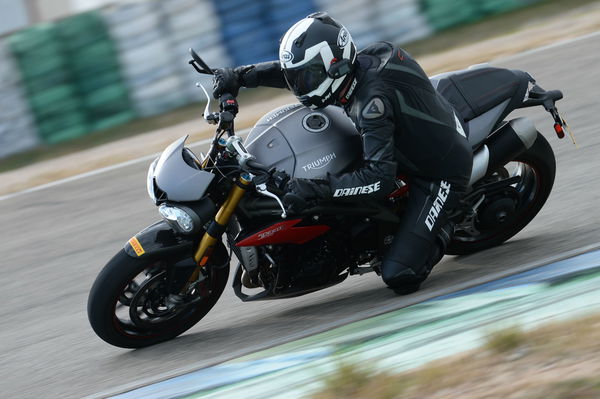
Probably the most significant of the updates to the model is the electronics package, with new ride-by-wire throttle bodies, traction control, switchable ABS, five riding modes and a slip-assist clutch. The modes are Rain, Road, Sport and Track. Each offers the full 140hp but with a varying degree of traction control intervention and torque in response to throttle input. So Track offers the most aggressive throttle response and lets the rear slide the most before stepping in to keep you the right way up. It also intervenes later with wheelies.
Changing modes is easy and straightforward, using a single button on the left bar.
The fourth riding mode is one you configure yourself, choosing your own levels of traction control and ABS (both of which can be switched off) and throttle map.
It’s also got a slip-assist clutch, to lighten the lever and reduce the tendency for the rear to slide on aggressive downshifts.
I still managed to accidentally slide it with a clumsy shift, but I felt so connected with what was going on that if anything it inspired confidence, in the bike and tyres, grippy Pirelli Diablo Supercorsas.
On Calafat’s chicane and through the snaking Esses, the Speed Triple could be slung from one side to the other with near sports bike ease. Ground clearance is good, pushing you to chase lean angle, and the hero blobs are stubby so a toe slider goes down first.
Accelerating out of a second-gear corner, the bars do a tiny shimmy as the front goes light, but it feels by design. The Speed Triple retains a reassuring sense stability as the revs climb, illuminating the programmable gear-shift lights on the dash.
If you bemoan the lack of a quick-shifter, you needn't; Triumph is offering one in its range of Speed Triple accessories, which also includes Arrow silencers. You can go soft, with a pillion grab-rail and power socket, or hard, with a three-into-one Arrow race exhaust saving a claimed 6.5kg.
Up close the styling detail and quality of finish on the Speed Triple R is very nice. The machined aluminium handlebar clamp tempts you to touch its ripples. No, ripples. The bar-end mirrors look good and actually function.
I’m not so sure about the tiny LED indicators. They look a bit like something Terry did to his own bike in the ‘90s, where taste is now moving toward indicators incorporated into mirrors.
And if something else failed to win my approval, it’s the clutch-in-to-start rigmarole. At one point, thinking the bike was in neutral, I pulled the clutch in and started the engine. It was actually in first, so when I released the clutch it jerked forward and stalled. My own stupidity, granted, but other bikes would have saved me from that particular example.
The supernaked class spans a broad pricing landscape, and the Speed Triple, at £11,500 for the R or £10,200 for the S, is in the middle.
You’ve got Suzuki’s GSX-S1000S at £9,099 – but it’s got that annoying snatchy throttle response, putting it out of contention in my book. There’s Kawasaki’s Z1000 at £9,899 but it's got no electronics package to speak of (the reason perhaps that some like it).
At the other end of the scale is Aprilia’s V4 1100 RR and KTM's 1290 Super Duke R, which are quite a bit more expensive than the Speed Triple at £13,150 and £13,999 respectively.
And also sitting in the middle is BMW's S1000R, which almost matches the two Speed Triple variants on price. The base-edition S1000R is £10,350 while the Sport variant, with semi-active suspension and a quick-shifter, is £11,750.
If you favour brutish muscle, you’ll have the BMW. If want more flexibility, a milder-mannered, more every-day-applicable mid-range, a throttle you can explore more often, not to mention less confused styling, I think it will be the Triumph.
WATCH OUR TRIUMPH SPEED TRIPLE R VIDEO REVIEW HERE
Model tested: Triumph Speed Triple R
Price: £11,500 (S edition £10,200)
Engine: 1050cc liquid-cooled in-line-three
Power: 140hp @ 9,500rpm
Torque: 86.2lbft @ 7,850rpm
Dry weight: 192kg
Wet weight: 212kg
Frame: Twin-spar aluminium
Suspension: Fully-adjustable Öhlins NIX30 USD fork and TTX36 twin-tube shock
Brakes: Front 320mm floating discs with four-piston Brembo radial monobloc calipers. Rear 255mm disc with Nissin two-piston sliding caliper.
Wheels: Cast aluminium 17x3.5 front, 17x6 rear
Tyres: Pirelli Diablo Supercorsa 120/70-17 front and 190/55-17 rear
Seat height: 825mm
Fuel capacity: 15.5 litres
Claimed fuel economy: 52mpg
Colours: white, matt graphite (S edition available in red or black)
